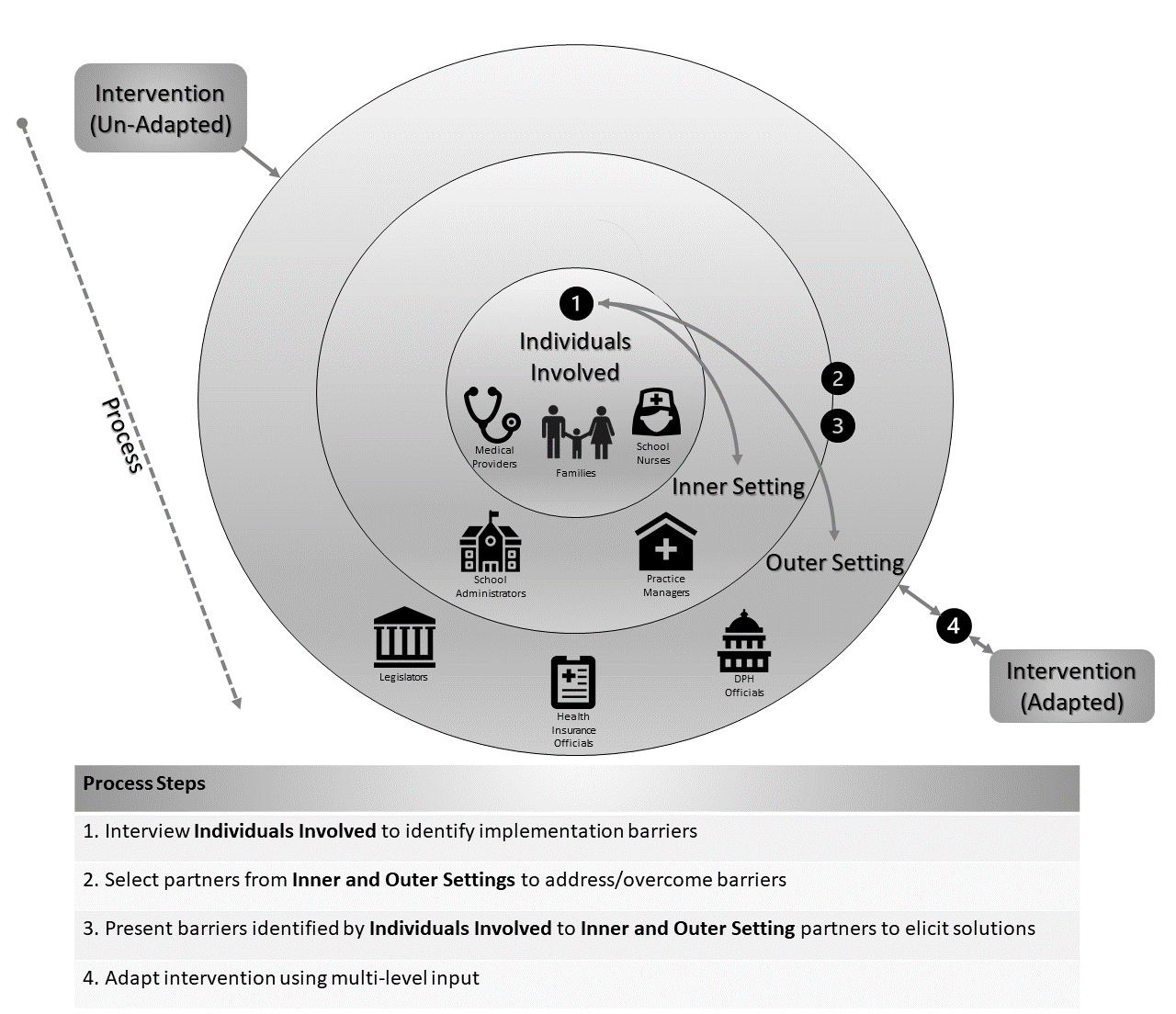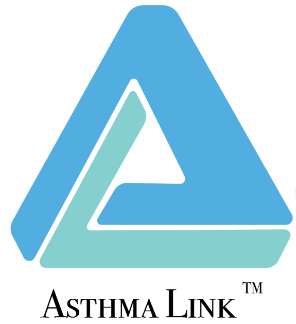Projects
Asthma LinkTM
Asthma LinkTM is low-cost, low-intensity intervention shown to improve preventive asthma medication adherence and asthma health outcomes.
Asthma Link is a real-world school-supervised asthma therapy program that links pediatric providers, schools, and families to ensure that children with uncontrolled asthma receive their daily asthma medication in school.
 Asthma LinkTM Studies
Asthma LinkTM Studies
Asthma Link has been implemented in practices and over 52 schools across the Central Massachusetts area.
Children enrolled in Asthma Link had a:
We have completed a 4-site cluster randomized controlled trial of Asthma LInk compared with enhanced usual care. We are conducting a 14-site cluster randomized controlled trial to assess the effectiveness and implementation of Asthma LInkTM.
Remote Asthma LinkTM
Remote Asthma LinkTM is a school-linked text message intervention developed to promote preventive ICS medication adherence for children with poorly controlled asthma. This intervention connects three participant groups - parents of children with asthma, school nurses, and medical providers - to support children with poorly controlled asthma and poor medication adherence.
Refinement of the Asthma LinkTM Protocol using Center-IT Methodology
We developed CENTER-IT as a methodology to guide scientists in the adaptation of evidence-based interventions for real-world practice, to ensure that adaptations reflect the voices of the participants who receive and deliver interventions.

Evaluation of the Effectiveness of School-Based Health Centers (SBHC)
Our team seeks to characterize the children served by SBHCs and to better understand whether SBHCs serve as a healthcare delivery system that advances child health equity.
Mixed Methods Evaluations of Pediatric Health Interventions
We conduct sequential designs to couple quantitative findings with the nuances of qualitative work.
